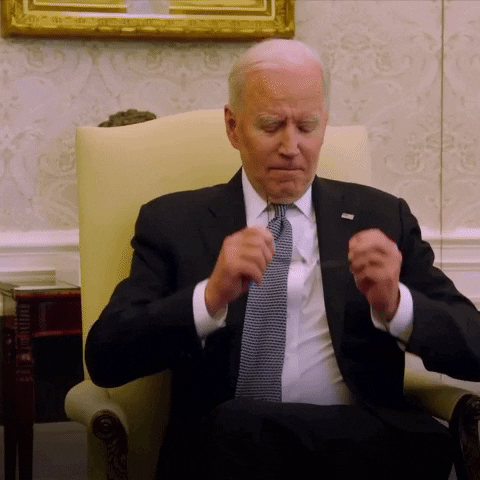- Sustainability Writer
- Posts
- Aruba vs Florida: A tale of two climate policies
Aruba vs Florida: A tale of two climate policies
As wealthy nations falter, poorer countries are showing them how it's done.

Hi friend,
It's easy to believe bad things will only happen to other people. Dying in a plane crash, facing a life-changing illness, or losing your home in a flood or wildfire feel like distant possibilities—until they happen to us. Only then do we wish we’d paid attention to the pre-flight safety talk.
I think a lot of developing nations find themselves in a similar position with the climate crisis. They've borne the brunt of the damage, with little help from the rich nations that are fuelling the problem.
That's why it makes me happy to see smaller nations take matters into their own hands.
Take Aruba. (🎤Jamaica, oooh, I wanna take ya 🎶 – sorry, I can’t help myself.) It wants to change its constitution to recognise nature’s rights and give humans the right to a clean, healthy, and sustainable environment. This would make Aruba only the second country in the world (after Ecuador, another developing nation) to recognise nature's inherent right to exist.
Meanwhile, developed nations are backtracking on their commitments to nature. The EU's nature restoration laws, which have been two years in the making, are collapsing due to opposition from some member states. The EU also wants to scale back and possibly suspend anti-deforestation laws.
And in Florida, Governor Ron DeSantis, a staunch climate change denier, wants to ban offshore wind energy, relax natural gas pipeline laws, and erase mentions of climate change from existing state laws.
This “out of sight, out of mind” strategy contradicts the fact that Florida is at the centre of the global warming crisis, with coastal infrastructure threatened by rising sea levels and hurricanes.
Besides, when Neil deGrasse Tyson says Florida is “supremely susceptible to sea-level rise during climate change,” you better believe there’s something to worry about. A sea-level rise of just three feet would consume much of Florida’s coastline.
In Florida, at 345-feet, Britton Hill is the highest elevation — the lowest highest elevation in United States. This makes Florida supremely susceptible to sea-level rise during Climate Change.
An objective truth even if you don’t believe in Climate Change. Just Sayin'.
— Neil deGrasse Tyson (@neiltyson)
9:02 AM • Mar 10, 2024
Yet, DeSantis continues to fast-track this outcome while ironically spending millions on coastal resilience projects. He clearly sees the danger but refuses to acknowledge its cause.
DeSantis is almost as bad as Donald Trump. Almost. When he was president, Trump dismantled more than 100 major climate policies and rolled back many more rules governing clean air, emissions, water, wildlife, and toxic chemicals put in place under Barack Obama.
I never thought I’d say this, but thank fuck for Biden, who has been rushing to restore many of the laws that Trump overturned before the election.
Just last week, he restored protections for endangered species, tightened vehicle emissions standards, and invested heavily in emissions-reducing projects.
Of course, all this will likely be undone under another Trump presidency, but at least Biden has bought nature some time.
It's baffling that small, developing nations are often more progressive on climate issues than wealthy, developed ones. Perhaps it's because they feel the consequences more acutely, and know they can't afford to lose what they have without serious suffering.
It's easy for developed nations to treat climate change as a problem for the future. They have the resources to adapt, at least for a while. But for developing nations, the effects are happening now, and the consequences are far more devastating. Losing farmland to drought or entire villages to sea level rise isn't a distant possibility – it's a threat to their very existence. They can't afford to wait and see what happens. They have to act now.
Maybe it's time developed nations learned that lesson before it's too late.
— Tarryn ✌️
P.S. Did someone forward this to you? You can subscribe here and get it straight in your inbox.
The good news
👏 The Caribbean nation of Aruba has proposed a draft constitutional amendment that would recognise nature’s right to exist. The government wants to add two environmental rights to the constitution: one granting nature rights of its own and the other giving humans the right to a “clean, healthy, and sustainable environment. If passed, Aruba will become only the second country, after Ecuador, to constitutionally recognise the rights of nature.
🌱 Brazil and France announced a conservation investment plan involving €1 billion to protect the Amazon rainforest over the next four years.
🐋 Indigenous leaders of New Zealand, Tahiti, and the Cook Islands signed a treaty that recognises whales as legal persons. Conservationists hope the move will apply pressure to national governments to offer greater protections for the mammals.
✅ The Biden administration restored protections for endangered animals and plants that had been loosened under the Trump presidency. The rules give federal officials more leeway to protect species in a changing climate and bring back protections for animals that are classified as threatened with extinction. Officials can also make decisions about whether to list a species without considering economic factors.
🇺🇸 Biden has allocated US$6 billion in funding for projects that will slash emissions from the industrial sector. This is the largest-ever US investment to decarbonise domestic industry to fight climate change.
🚘 Biden also announced new limits on tailpipe emissions. The rule, which calls for a 56% reduction in fleet-wide average carbon emissions by 2032, is the strictest-ever limit on pollution from the US’s cars and light trucks.
🛠️ The EU has agreed on a new law giving consumers the “Right to Repair” their tech devices, even after warranty periods end. The law intends to incentivise consumers to fix rather than replace their devices, which reduces e-waste costs by supporting the use of compatible and reused spare parts.
The bad news
🪸 Australia’s Great Barrier Reef Authority said heat stress from climate change-driven rising ocean temperatures is behind the mass coral bleaching event currently underway – the fifth in eight years. Just last week, Sydney sea temperatures were warm enough for a tropical cyclone to form. Ocean temperatures rose 3°C above average for March, and reached the highest recorded in Sydney since 1992.
👎 Florida may soon adopt legislation banning offshore wind energy, relaxing natural gas pipeline regulations, and removing most mentions of climate change from existing state laws. Governor Ron DeSantis is a notorious climate change denier, despite the fact that his state is on the frontlines of the global warming crisis, with many coastal homes and businesses under threat from rising sea levels and hurricanes. The DeSantis administration must understand that coastal threats are a problem if it has allocated US$640 million for resilience projects, yet it refuses to accept the root cause of the problem.
🇪🇺 The EU’s nature restoration laws appear on the verge of collapse after eight member states, including Hungary and Italy, withdrew support for the legislation. The laws, which have been two years in the making, were supposed to be approved last week but have now been shelved because they failed to achieve the required majority support.
📈 A European Central Bank study has found that global food prices will rise 1.5 to 1.8 percentage points annually within a decade as temperatures climb. By 2035, this will coincide with an increase in overall inflation of 0.8 to 0.9 percentage points brought on solely by extreme weather.
🚘 The Australian Federal Government has relaxed proposed emissions regulations for new cars following pressure from the automotive industry.
🌴 Palm oil bought by Americans may have caused 103,000 acres of deforestation, mostly in Indonesia, according to a new analysis by Global Witness. This is a conservative estimate because it doesn’t count all imports of manufactured products that contain palm oil.
🌀 Wild weather:
🌵 Drought in Alberta, Canada, enters its fourth year, prompting water restrictions. Droughts are also taking their toll in Karnataka, in India; Coquimbo, in Chile; and Johannesburg, in South Africa.
🥵 West Africa experiences an unprecedented early heat wave.
🌀 Tropical cyclone kills 18 people and displaces more than 20,000 in Madagascar.
🔥 Record wildfires rip through Venezuela.
Business news
💸 Chevron has agreed to pay US$13 million in fines to California agencies for its oil spill incidents, marking a step towards addressing past environmental damages.
❌ Three right-wing groups sued the Biden administration over its approval of a wind project off the coast of Virginia, arguing that it failed to consider the facility's impacts on endangered whales. Two of the groups – Heartland Institute and the Committee for a Constructive Tomorrow (CFACT) – have rejected mainstream science showing that climate change is driven by human use of fossil fuels.
🏦 The proposed Africa Energy Bank is set to start operations later this year. It will focus investment on oil and gas projects across the continent.
Well, that's interesting
Global warming may be slowing Earth’s rotation.
The melting of Earth's ice caps is delaying the planet's rotation, affecting the world's Coordinated Universal Time (UTC) time standard. Since 1972, authorities have added 27 leap seconds to UTC to make up for "tidal friction" –the moon's pull on the oceans – that causes a delay in the Earth's spin.
Recently, Earth's spin has accelerated, leading to the possibility of removing a second from UTC rather than adding it. This has sparked widespread concern that technology may struggle to cope with this "negative leap second," perhaps causing enormous disruption to global networks.
One small thing you can do
Sign the Global Plastics Treaty.
Because lots of little actions combined can add up to something remarkable.
I'll leave you on this happy note...
The Gas Leaks Project, a group formed by climate advocacy veterans, launched a US$1 million campaign that uses humour to challenge the oil and gas industry's messaging that natural gas is a crucial "bridge fuel" in the transition to renewable energy.
Called "Hot & Toxic," the campaign's trailer is a parody of a reality television show in which 21 annoying housemates representing pollutants associated with natural gas descend on an unsuspecting homeowner. The message is clear: Using natural gas inside your home is not safe.
Enjoyed this newsletter? Please subscribe and tell your friends about it t




